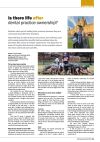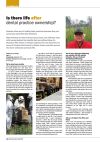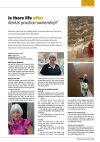
Articles

Buyers have limited time and patience when it comes to exploring practice opportunities for sale. They swipe through opportunities like people scroll through Netflix — and if your story doesn’t catch their eye in the first few seconds, you’re passed over.

As experienced dental practice brokers in Australia, my team and I are always amazed at the misconceptions that some dentists have about the process of selling a practice. In this article, we thought we would address some of the more common seller misconceptions that we hear:

Selling a business is one of the most significant financial and emotional decisions a person can make. For many vendors, their business is not just an asset — it’s a deeply personal creation. It represents years (or decades) of risk, resilience and relentless hard work. So, when it comes time to sell, the emotional weight can surprise even the most rational and well-prepared owners.
It often starts innocently enough, with someone expressing unsolicited interest in buying the business. The owner of the practice usually feels flattered by the attention, curious about what their practice is worth, and sometimes relieved, as they had been unsure how to exit plan. The conversation and courtship progresses and, before long, the seller is neck-deep in a one-on-one negotiation. No broker, no other buyers, no competitive bidding, no expert advice. Just one buyer, one conversation, and one path forward.

As experienced dental practice brokers in Australia, my team and I are always amazed at the misconceptions that some dentists have about the process of buying and selling a practice. In this series of articles, we thought we would address some of the more commonly heard and persistent misconceptions that practice buyers have:
When your practice has been stable, or on a growth trajectory for the past few years, it’s easy to start believing that it will always be like this. That tomorrow will always be the same as today and next year will be like this year. It is easy to start believing that the strength of your practice, and its valuation if put to market, is secure into the future.